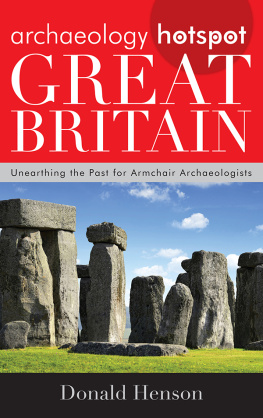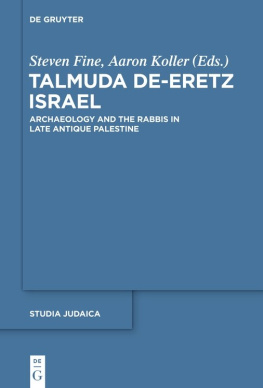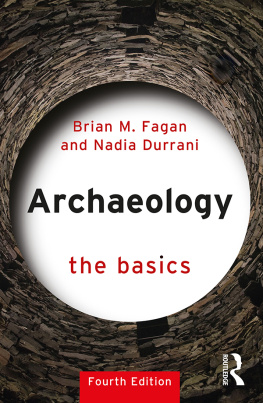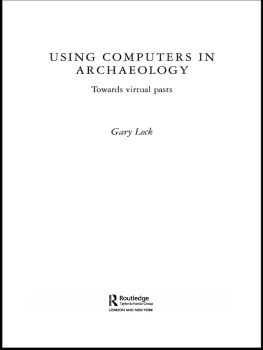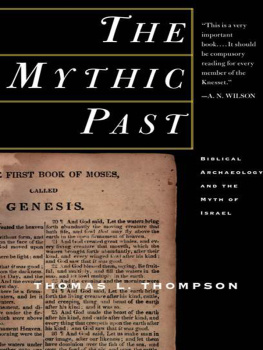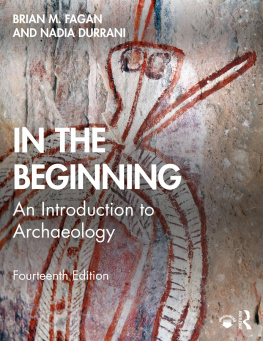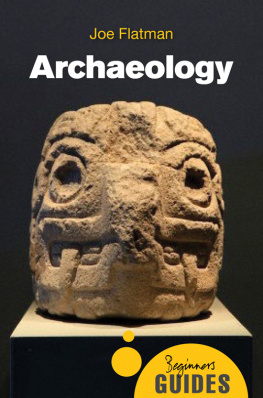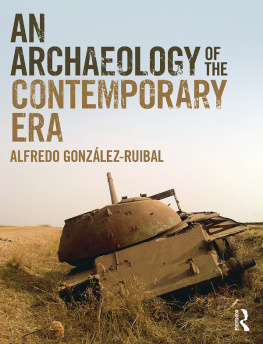First published 2006
by Equinox, an imprint of Acumen
Published 2014
by Routledge
2 Park Square, Milton Park, Abingdon, Oxon OX14 4RN
711 Third Avenue, New York, NY 10017, USA
Routledge is an imprint of the Taylor & Francis Group, an informa business
Raz Kletter 2006
All rights reserved. No part of this book may be reprinted or reproduced or utilised in any form or by any electronic, mechanical, or other means, now known or hereafter invented, including photocopying and recording, or in any information storage or retrieval system, without permission in writing from the publishers.
Notices
Practitioners and researchers must always rely on their own experience and knowledge in evaluating and using any information, methods, compounds, or experiments described herein. In using such information or methods they should be mindful of their own safety and the safety of others, including parties for whom they have a professional responsibility.
To the fullest extent of the law, neither the Publisher nor the authors, contributors, or editors, assume any liability for any injury and/or damage to persons or property as a matter of products liability, negligence or otherwise, or from any use or operation of any methods, products, instructions, or ideas contained in the material herein.
British Library Cataloguing-in-Publication Data
A catalogue record for this book is available from the British Library.
ISBN 13: 978-1-84553-085-3 (hbk)
Library of Congress Cataloging-in-Publication Data
Kletter, Raz.
Just past?: the making of Israeli archaeology / Raz Kletter.
p. cm.
Includes bibliographical references and index.
ISBN 1-84553-085-3 (hb)
1. Excavations (Archaeology)--Israel--Political aspects. 2. Israel--Antiquities--Political
aspects. 3. Israel. Rashut ha-atiot--Officials and employees. 4. Israel--Politics and
government--20th century. 5. Archaeologists--Israel. I. Title.
DS111.K57 2006
933'072'05694--dc22 2005008378
Typeset by Kate Williams, Swansea.
Study as if you were to live forever; live as if you were to die tomorrow.
Edmund of Abingdon, first known MA holder of Oxford University, d. 1240 (quoted in Morris 1978: 8)
Digressions, incontestably, are the sunshine; - they are the life, the soul of reading! - take them out of this book, for instance - you might as well take the book along with them; - one cold eternal winter would reign in every page of it; restore them to the writer; - he steps forth like a bridegroom ... but the author ...in this matter, is truly pitiable: For, if he begins a digression, - from that moment, I observe, his whole work stands stock still; - and if he goes on with his main work, - then there is an end to his digression.
Sterne (2004 [1760]: 63-4)
Frozen US Intelligence money; Tedi Kollek; a Palestinian absentee in Cyrenaica; David Ben-Gurion; growing watermelons on the Tell of Ashdod; General Moshe Dayan; a camouflaged evacuation post in the middle of the Megiddo excavations; Shemuel Yeivin; Masada; sacred genizot in the Galilee; the wonderful rock found by Reverend P. of Brighton; Binyamin Mazar; the Institute for Dietary Education of the Ministry of Supplies and Rationing; Yigael Yadin; a deceased representative on the Supreme Council of Archives; the Rockefeller Museum; cigars and Chivas Regal; resting one's head on Marlene Dietrich's legs ... All these things are part of Just Past?, for this book tells the story of the creation of Israeli archaeology in the 1950s and early 1960s. It is unlike any other book on the archaeology of the "Holy Land", since it isn't just a chronological parade of important excavations and interesting finds, but a history of intrigues, funding, failures and, above all, dreams. It is an archaeological graveyard, full of lost finds and lost causes beside the well-known excavated plots.
Just Past? is a book about the past, but there is hardly a page without some new fact or story, in the sense that it has never been published before. I have been an archaeologist for over twenty years now, but almost all of these stories were new even to me. These are the genesis stories, the stories of the birth of Israeli archaeology, from the first hour, day, year. Everything was new; and abandoned, and destroyed. It was a peculiar Garden of Eden, in which the two eternal gods of archaeology - creation and destruction - reigned supreme.
The book is based upon a unique treasure trove of thousands of official documents, never published before, from the State of Israel Archive, Ginzach Leumi (GL). Most of the documents come from the Israeli Department of Antiquities and Museums (IDAM), but some are also from the Ministry of Education and Culture and the Prime Ministers Office. I have also used many newspaper clippings, even from obscure periodicals in Hebrew that no longer exist. The Hebrew language has changed considerably since the 1950s and some of the charming "archaic" nuances are lost in translation. The original filing codes of the documents are meaningless to readers, so I refer to the current archive file number, usually followed by the number and/or date of the individual document.
The State of Israel Archive is by far the largest and most important source for the history of Israeli archaeology and also gives a wide scope, since the documents are not limited to one institution only. Most documents originate from the IDAM, so the views and facts relating to this body are well represented. In the 1950s there were only two other significant archaeological bodies in Israel. Unfortunately, documents from the Israel Exploration Society (IES) and from the Department of Archaeology of the Hebrew University were partially lost. Just Past? is the first publication to use primary archival materials about early Israeli archaeology.
The documents reveal a surprising picture. Much was written about archaeology in Palestine during the Ottoman and British Mandate periods (Mazar 1936; Sukenik 1952; Silberman 1982; Shavit 1989; Braun 1992; Reich 1992a; Ben-Arieh 1999a,b, 2000, 2001; Abu el-Haj 2002; on excavators see Drawer 1985, 2004; Blakely 1993; Momigliano 1995; on the Hebrew University see Katz & Heyd 1997). Very little has been published about Israeli archaeology after 1948 and archival documents have not been used. Biographies of Israeli archaeologists are rare and not very critical (Silberman 1993; Aharoni 1998); obituaries are short and, naturally, positive (Kochavi 1981; Avigad 1989; Ben-Tor 1989; Dever 1989). The regular products of archaeological writing - excavation and survey reports and the like - are not very helpful; nor are the textbooks (Albright 1949; Aharoni 1978, 1986; Stern 1993; the best are Mazar 1990 and Stern 2001). Criticisms are also rare, and are almost always limited to very narrow arenas: the political place within the Israeli-Palestinian conflict or the accusation about the "Biblical archaeology" bias (Shay 1989; Kempinski 1994; Abu el-Haj 2001). We read much about the "myth of Masada", for example (Ben-Yehuda 1995, 2002), but nothing about why, by whom and when the decision was made to start excavations at Masada, who provided the funding and how Yadin became the excavator. Anything not overtly political was neglected; while politics were often of more relevance to the authors than to their subjects. Also, archaeologists neglected their own history, leaving the field to scholars from other disciplines specializing in recent periods (e.g. Feige 1998; Shavit 1997). A community focused on the study of some distant human past must also acknowledge its own roots: its genesis. Without knowing the origins and history of Israeli archaeology, there can be no open-minded evaluation of it.


